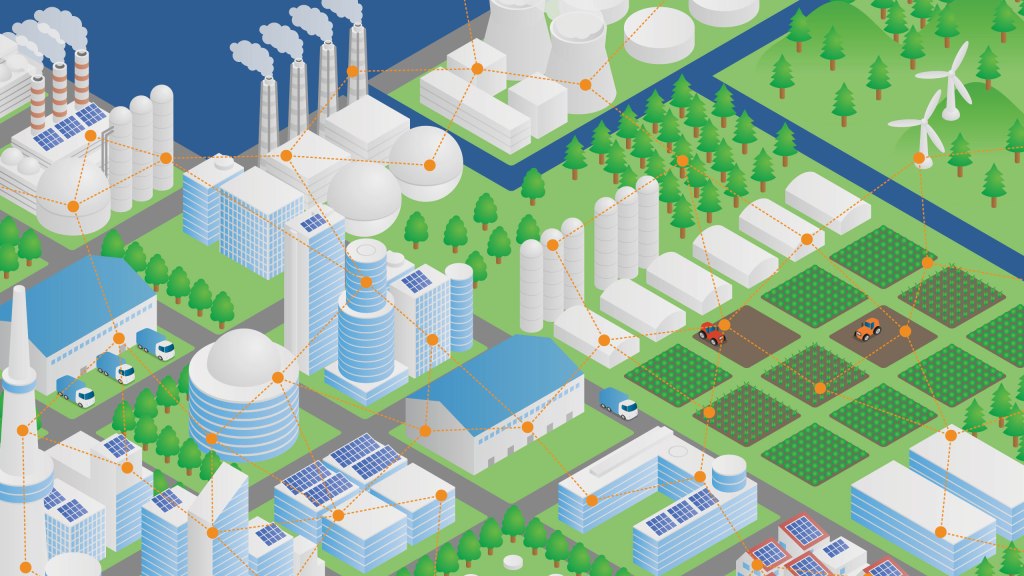Sebastian Egerton-Read
Few topics receive greater hype in the media today than the Internet of Things (IoT), and still a report produced by McKinsey & Co. last summer argued that the potential impact of IoT technologies might actually be understated. An estimated economic impact of $3.9-11.1 trillion a year by 2025 was the bottom line of McKinsey’s research.
Debates about economic value are ultimately intertwined with questions about how our global economy should function, but the raw figures attributed to emerging technologies are rarely accompanied with big-picture thinking around the frameworks and principles that should guide our economy.
IoT technological advancements could reinforce existing paradigms, simply making the current take-make-dispose linear economy more and more efficient, whilst failing to address resource and natural capital issues.
Alternatively, this new connectivity also offers the opportunity to re-think the underlying system and support the development of a circular economy. New technologies have been considered as being a key enabler of the transition to a circular economy, defined as being restorative and regenerative by design, while aiming to keep products, components and materials at their highest utility and value at all times.
Identified as a significant business opportunity, circular economy models have gained increasing momentum over the last five years. Combine the principles of a regenerative and restorative economy, where the utilization and useful life of assets is extended, with IoT technologies, which provide information about the condition, location and availability of those assets, and there may be an even greater opportunity to scale new models more effectively, while providing new direction to the digital revolution.
To pose an example, the average European car currently spends 95 percent of the time parked. Large automotive manufacturers, including the likes of GM and Ford, have identified economic advantages to be gained by leasing vehicles through car-sharing models, rather than restricting themselves to a one-time sales model.
To bring those models successfully to scale, manufacturers require the ability to carefully monitor the condition of a vehicle. IoT sensors could help to improve the maintenance and lifespan of existing cars, as well as provide a wealth of new data to inform the design of more durable and effective products in the future.
Developing individual business models is one thing, but the recent report, Intelligent Assets: Unlocking the Circular Economy Potential, goes a step further by looking at the opportunities for the larger system. A vision for the built environment where a digital library of materials is sourced from connected buildings, which also provide information that allows predictive maintenance and effective sharing and utilization of space and energy consumption, is sketched out in the report. The multiplier impact, in terms of benefit, of resolving a number of challenges with a single systemic solution is assumed to be significant.
A similar approach can be taken in relation to a range of sectors. Contrast today’s energy system, reliant upon centralized generation of power through the burning of fossil fuels and by a few large players, with the possibility of a future connectivity-enabled distributed, grid-free energy supply, where hundreds of local solar and wind energy generators supply power locally. The technology required in such a system isn’t particularly “futuristic” either; indeed, startups like Vandebron in the Netherlands and Brooklyn-based Transactive Grid are already working in this way on a small scale.
Few attempts have been made to quantify the scale of the economic value and savings made when implementing these wider systems. However, Nicolas Cary, co-founder of Blockchain, has presented an interesting perspective, arguing that a digital payment system might be a critical element in a future economy:
“For intelligent assets to create value in the circular economy the development of an open and global payment protocol is required. The technology behind the Bitcoin blockchain has the potential to enable the billions of internet devices that negotiate with each other to unleash market forces, to bring down the costs of goods and services for all.”






























Comment